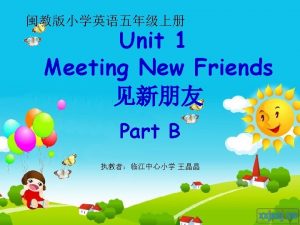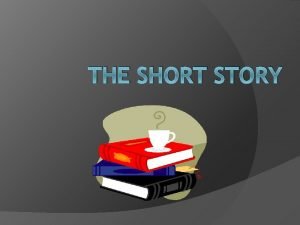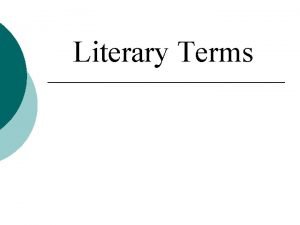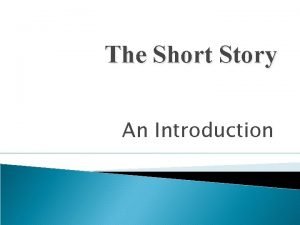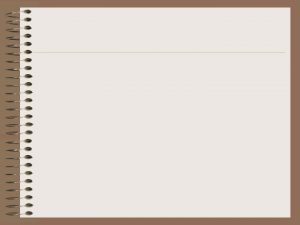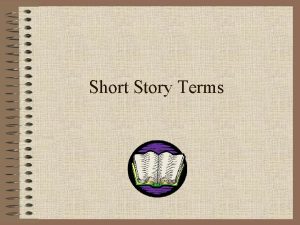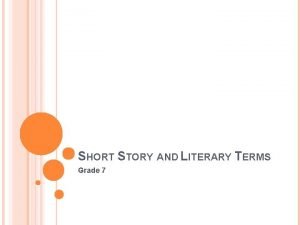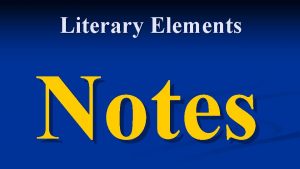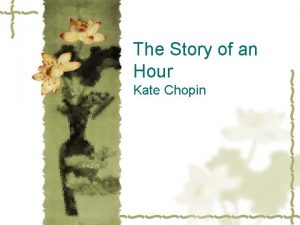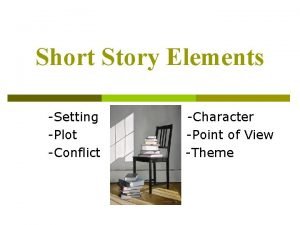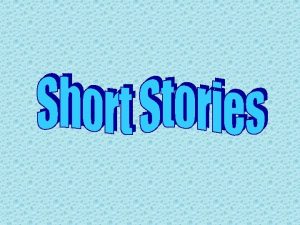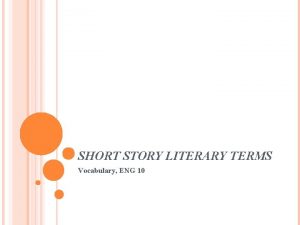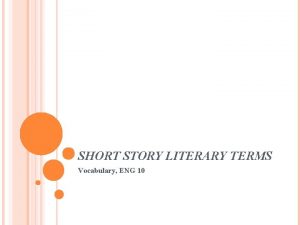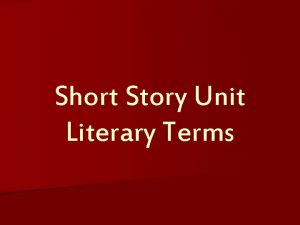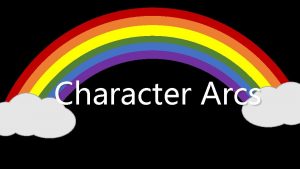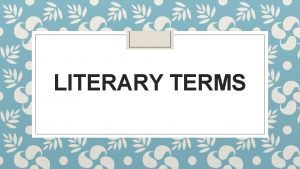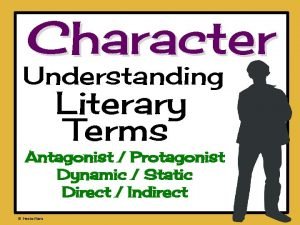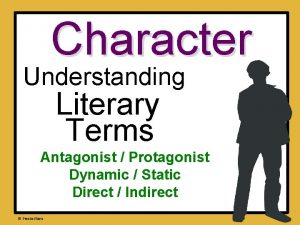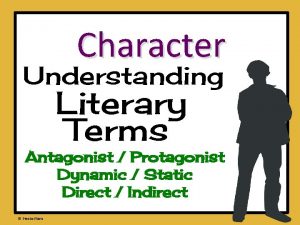Short Story Literary Terms Literary Terms Character protagonist










- Slides: 10

Short Story Literary Terms

Literary Terms – Character protagonist antagonist • The main character in a story. • The character who opposes the main character.

Literary Terms - Character Static Character Dynamic Character Flat character: Round character: • One who does not change much, if at all, over the course of the story. • A character who changes as a result of the events of the story. • Has only one or two traits and these can be described in a few words. • Is like a real person; has many different character traits which sometimes contradict one another

Literary Terms – Point of View (vantage point from which the writer tells the story) Omniscient (or all-knowing) • The person telling the story knows everything there is to know about the characters and their problems. First-person • One of the characters is the narrator of the story; uses the pronoun ‘I. ’ The reader only knows what this character knows. Third-person limited • The events of the story are related through the eyes of a third-person narrator who plays no part in the story; uses the pronouns ‘he/she. ’

Conflict Struggle or clash between opposing characters or opposing forces: � External conflict – a character struggles against an outside force � Internal conflict – a struggle which takes place entirely within a character’s own mind

Common types of conflict: �Man �Man versus versus man nature society fate self

Setting & Plot Setting = the time and place of the story Plot = a series of related events that make up a story or drama � Exposition – introduction to characters and setting, background information � Rising action – introduction of conflict, complicating factors � Climax – crisis or turning point in the story; main character takes decisive action to end the conflict � Falling action – final details are worked out and the ending is suggested � Resolution/denouement – all remaining loose ends are tied up

Language Diction – a writer’s or speaker’s choice of words Connotation – all the meanings, associations, or emotions that a word suggests Denotation – the dictionary definition of a word Style – the way a writer presents his/her ideas � Informal/plain style – simple, clear, everyday use of language � Formal/ornate style – elaborate, formal use of language � Local color - distinctive, sometimes picturesque characteristics or peculiarities of a place or period as represented in literature or drama, or as observed in reality.

Short story unit terms: � Genre � Suspense � Theme � Mood � Tone � Dialogue � Flashback

Literary Devices � Foreshadowing � Imagery � Metaphor � Personification � Simile � Symbol/symbolism
